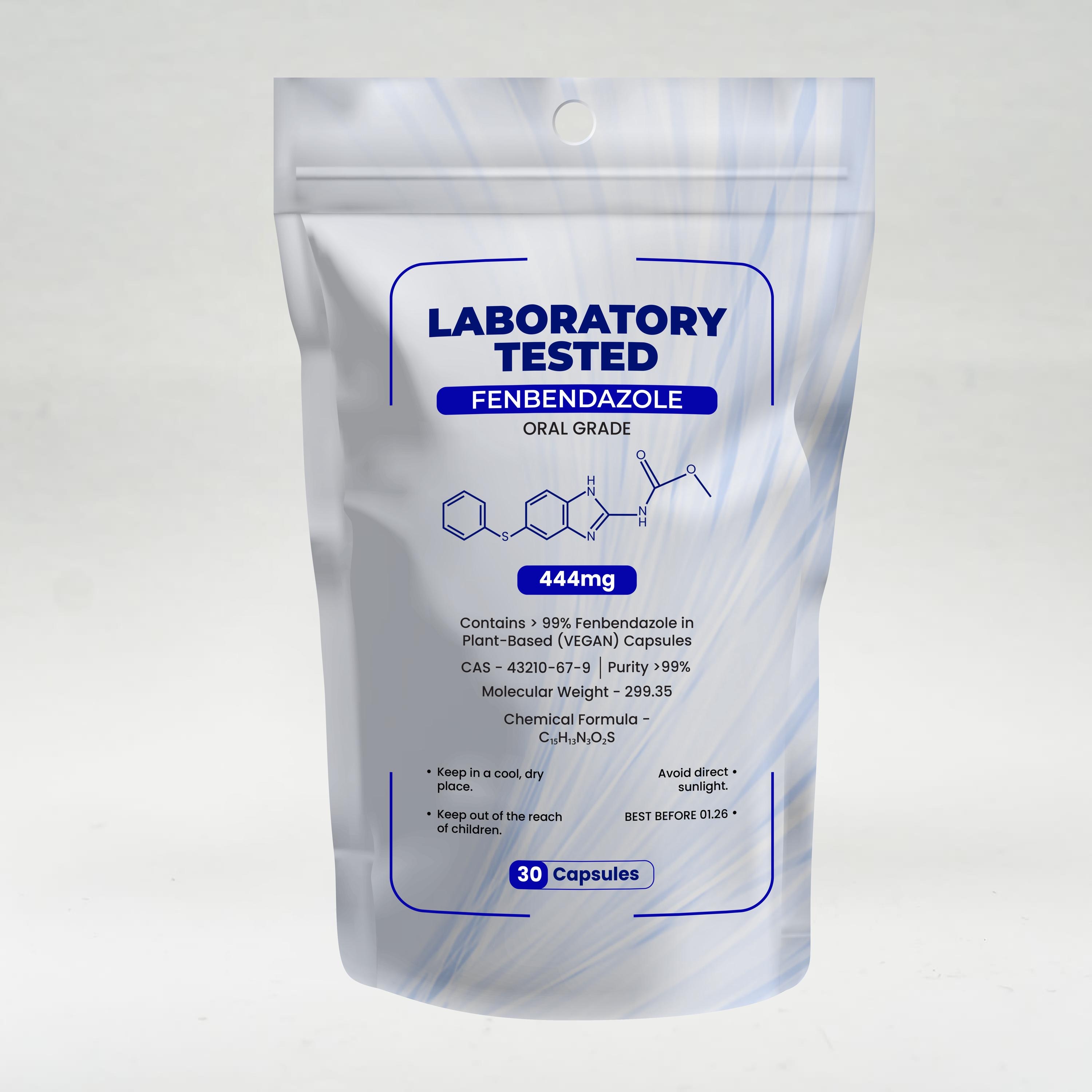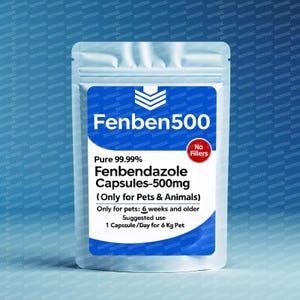fenbendazole capsules: Effective Solutions for Parasite Control
Recognizing the Perks and Uses of Fenbendazole in Vet Medicine
Fenbendazole has established itself as a vital anthelmintic in vet medication. Its ability to target different parasitic infections makes it an important tool for vets. The medication's mechanism interrupts important cellular procedures in parasites, resulting in efficient treatment results. Nonetheless, its security account varies in between species, demanding careful factor to consider in its use. Recognizing these characteristics can clarify fenbendazole's broader implications in veterinary care and recurring research into its prospective past typical applications
Device of Activity of Fenbendazole

Usual Parasitical Infections Treated With Fenbendazole
A selection of parasitic infections are effectively treated with fenbendazole, making it a functional option in vet medicine. This anthelmintic representative is particularly reliable against nematodes, including roundworms and hookworms, which commonly impact dogs and cats. It is also made use of for the therapy of cestodes, such as tapeworms, supplying a broad spectrum of action versus both kinds of intestinal bloodsuckers. Furthermore, fenbendazole is useful in managing infections brought on by protozoa, especially Giardia, which can lead to intestinal distress in animals. Its efficacy encompasses dealing with certain lungworms in dogs and felines, attending to breathing wellness problems linked to these parasites. On the whole, fenbendazole's capability to target numerous parasitic types makes it a beneficial device in vet method, ensuring the health and wellness and health of animals influenced by these usual infections.
Safety and security and Efficacy in Various Animal Types
The safety and security and efficacy of fenbendazole vary among various pet species, underscoring the significance of species-specific considerations in veterinary medication. In dogs, fenbendazole is normally well-tolerated and efficient against a range of stomach bloodsuckers, consisting of roundworms and hookworms. For felines, nonetheless, its usage is much less usual and might require mindful application as a result of possible negative reactions.
In livestock, such as livestock and sheep, fenbendazole shows performance versus various endoparasites, adding to enhanced health and wellness and performance. The pharmacokinetics and potential side impacts can vary substantially in between types, necessitating mindful assessment by veterinarians.
Horses additionally respond favorably to fenbendazole, particularly for dealing with strongyles and ascarids, though dose and administration courses have to be customized to their unique physiology. Comprehending these differences is crucial for maximizing treatment results and ensuring pet welfare throughout diverse varieties.
Administration and Dose Guidelines
Appropriate administration and dosage standards are vital for making best use of the restorative impacts of fenbendazole while lessening possible side effects. The dosage commonly varies depending upon the types being dealt with, the specific condition, and the formula of fenbendazole made use of. fenbendazole. For pet dogs and pet cats, a common dosage is 50 mg/kg body weight, provided as soon as daily for 3 consecutive days, however vets might adjust this based upon specific health assessments
It is necessary to administer fenbendazole with food to enhance absorption and minimize stomach upset. The drug is readily available in numerous kinds, consisting of granules and paste, allowing for flexible management alternatives. Keeping track of the animal's reaction during and after treatment is advisable to confirm efficacy and safety and security. Furthermore, veterinary advice is essential to determine the ideal duration of click now therapy based on the sort of parasitical infection being dealt with, assuring excellent outcomes for the animal's health.
Future Point Of Views and Research Study on Fenbendazole
Research study on fenbendazole remains to advance, concentrating on its possible applications past traditional antiparasitic uses. Recent studies have explored its efficiency in treating numerous types of cancer, particularly in veterinary oncology. Initial information suggest that fenbendazole may hinder the development of lump cells and improve the effects of various other chemotherapeutic agents.
Additionally, scientists are examining its role in taking care of food poisonings in animals, highlighting its anti-inflammatory properties. The adaptability of fenbendazole for various species elevates concerns concerning its safety accounts and optimal dosing regimens in varied populations.
As passion grows, there is a demand for comprehensive medical tests to establish evidence-based guidelines for these novel applications. Future study might likewise examine the devices behind fenbendazole's effects, potentially leading the method for cutting-edge therapeutic methods in vet medication. The ongoing expedition of fenbendazole could greatly enhance therapy alternatives for different veterinary problems.

Often Asked Questions
Is Fenbendazole Safe for Pregnant Animals?
The security of fenbendazole for expectant animals remains uncertain. More hints While some studies suggest minimal risk, veterinarians commonly advise care and usually discourage its usage while pregnant unless the benefits plainly surpass prospective dangers.
Can Fenbendazole Be Utilized in Livestock?
Fenbendazole is typically made use of in livestock to treat different parasitical infections. fenbendazole. Its efficiency against intestinal worms makes it a valuable anthelmintic, adding to boosted health and performance in pets increased for food and fiber
What Are the Side Effects of Fenbendazole?

The side results of fenbendazole might include gastrointestinal disruptions, lethargy, and sensitive reactions. In uncommon cases, a lot more extreme responses might occur, requiring mindful monitoring and appointment with a vet during therapy.
Exactly How Does Fenbendazole Compare to Other Dewormers?
Fenbendazole provides broad-spectrum efficiency versus different parasites, typically comparing favorably to other dewormers. Its unique mechanism targets various life stages, making it effective, while generally offering a positive safety account compared to options offered on the marketplace.
Can Fenbendazole Be Utilized for Treating Cancer in Family Pets?
The capacity of fenbendazole in treating cancer cells in pet dogs has actually useful content gathered interest. Initial researches suggest it may hinder cancer cells cell growth, but better study is needed to confirm its efficacy and safety and security in veterinary oncology.